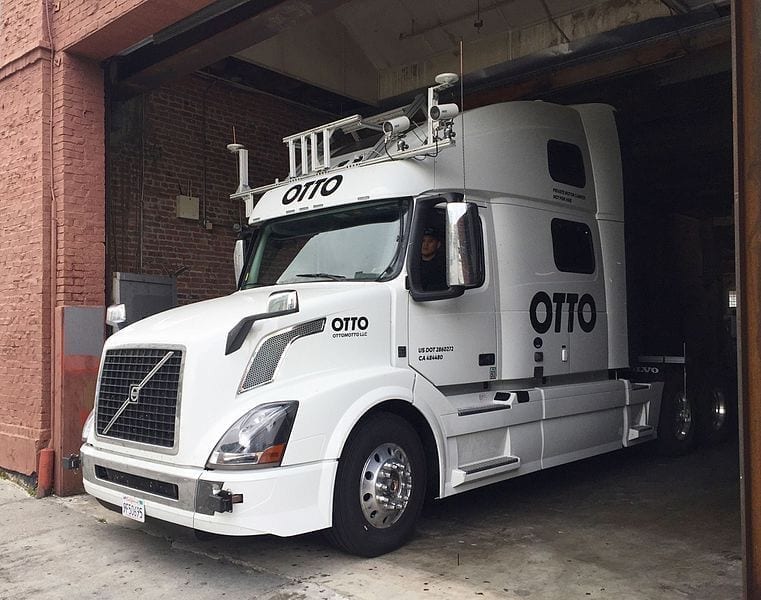On Thursday, the Trump administration signaled its intent to ease a nationwide roll out of automated cars and trucks.
In a federal memo, officials said they’ll “no longer assume” that the driver of a commercial motor vehicle has to be a human or even sentient. According to the Washington Post, the administration is attempting to ‘ease the federal process for exempting trucks’ and other modes of transportation from ‘existing safety standards that might inhibit the use of automation.’
To get there, commercial vehicles would have to be classed as drivers in their own right. New guidance, summarized by Wired.com, explains how self-operating semi-trucks would have to demonstrate an ability to go everywhere freight goes. Companies will be given opportunity to show that their vehicles are likely to achieve ‘an equivalent level of safety.’
“We have a much clearer roadmap now,” said Jonny Morris of Embark, which has a fleet of test trucks delivering freight in California and Arizona. “We’re starting from a point where the DOT is acknowledging that what we’re trying to do is generally allowable under existing regulations.”

Right now, different states maintain different laws regarding the legality of self-driving vehicles. Implementing federal-level guidance for interstates and other infrastructure would enable companies to expand self-driving truck routes across the country.
Wired.com says the DOT is hoping to develop an “advanced notice of proposed rulemaking” for self-driving cars and trucks.
The agency’s goal is to ‘guarantee road safety while ensuring that the federal government’s vehicle design standards don’t get in the way of self-driving vehicles.’ Certain design features and safety devices, like steering wheels and rearview mirrors, wouldn’t be necessary without a human pilot.
But as the law currently stands, companies and private parties have to apply for special permits to operate vehicles without mandated safety features.
Along with a push to cut back regulation, officials have singed abroad a joint research effort. A combined team of workers from the Transportation, Labor, Commerce and Health and Human Services departments will study the ‘workforce impacts’ of driverless vehicles.
Transportation Secretary Elaine Chao, as quoted by the Post, says she remains ‘extremely concerned’ about the negative impact automation will have on American labor.
Other politicians—including several U.S. senators—believe a change in law could exclude states from exercising oversight on transportation networks.
“There’s a wariness about the federal government’s regulatory commitment and willingness to police the companies,” said Bryant Walker Smith, assistant professor of law at the University of South Carolina. “Even more than the distrust in the technology, it’s distrust in the companies … And it’s even a distrust in the administrative ability of government to regulate, to act as a check.”
Sources
THE DOT SAYS ‘DRIVERS’ DON’T HAVE TO BE HUMAN
Trump administration pushing to ease roll-out of driverless cars and trucks


Join the conversation!